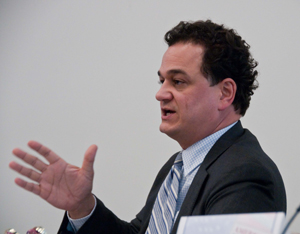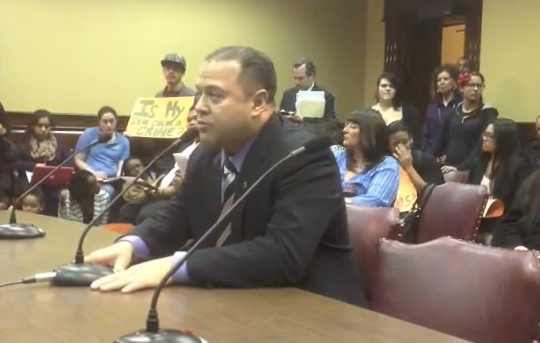Take a few minutes to watch Jennifer Pahlka at a TED conference.
 Essentially, I’m a big fan of initiatives that do two things: 1. make government more responsive, and 2. save government money. At the same time, for those of my generation who see this sort of stuff as patently obvious, it’s nice to know that people are actually doing this somewhere. There’s tons of issues with bureaucracy, but to put it simply, it’s not going away. We also forget (or just plain don’t know) how much policy is being made down the line by people in government. Sometimes, it doesn’t make sense to go after a politician when focusing on a bureaucrat will do just as well, and probably be more successful.
Essentially, I’m a big fan of initiatives that do two things: 1. make government more responsive, and 2. save government money. At the same time, for those of my generation who see this sort of stuff as patently obvious, it’s nice to know that people are actually doing this somewhere. There’s tons of issues with bureaucracy, but to put it simply, it’s not going away. We also forget (or just plain don’t know) how much policy is being made down the line by people in government. Sometimes, it doesn’t make sense to go after a politician when focusing on a bureaucrat will do just as well, and probably be more successful.
I hope more ideas like those Jennifer Pahlka and Code for America are producing will find their way into government. Because we can spend a long time arguing about how to fix it, and electing people who say they’re going to fix it, and still not fix it.
UPDATE: Bob’s pointed out there’s a very similar talk, that’s about ten minutes longer than the one up there that gets into way more than the other. Taken together, they’re a good meditation on the difference between advocating for smaller government and advocating for more efficient government.
And I should take the moment to point out how we respond to this stuff in our own cities and towns. We spend a long time squabbling over the same things because those are perennial issues and they’re guaranteed to get voters out. But as folks are advocating this “knowledge economy” we need to start focusing on making our government more responsive via its technology.
Take GoLocalProv’s “See Click Fix“. You don’t have to spend more than a minute to discover that almost all are still listed as “open”, meaning nothing’s been done. But a large portion of them are not things that government can actually effectively do anything about. “Eyesore building” is a problem for the building’s owner. And I wonder how connected this app is with, say, the Public Works departments of various cities (I suspect not at all). But graffiti? Guess what, you can do that on your own. Providence, with its budget deficit, is finding it harder and harder to fix things.
The great danger of government is that people use it to solve problems they themselves are capable of taking care of. I’ll give you a counterexample of that: when I was young a windstorm blew a large tree limb down across the sidewalk in front of an apartment building. Any time anyone walked down the street, they had to walk around the thing. I got sick of doing that after a few days, so I went home and got the saw out of the shed and went back and spent about twenty minutes or so clearing the limb. It didn’t take long, and it could’ve been done by anyone at any time. I just took the initiative.
Too often, people take an elitist attitude when dealing with others. “Those folks are just stupid,” we say, failing to attempt to comprehend the opposing view point. A commenter on this site recently quoted H.L. Mencken’s “no one went broke underestimating the intelligence of the American people.” I want to take this moment to call out that kind of attitude as both unproductive and just plain foolish. The American people are pretty intelligent. Collectively, they’ve built one of the most powerful nations in all of history. We all got rich off the intelligence of the American people.
It’s people like Ms. Pahlka and Code for America who are advancing us. It’s those that say there’s no way we can solve problems, those that throw up their hands and say “well, everyone’s just a crook” that aren’t helping. I like the idea that government is what we do collectively that we can’t do ourselves. That’s the government I want, in Providence, in Rhode Island, and in the United States. Nothing is insurmountable.






